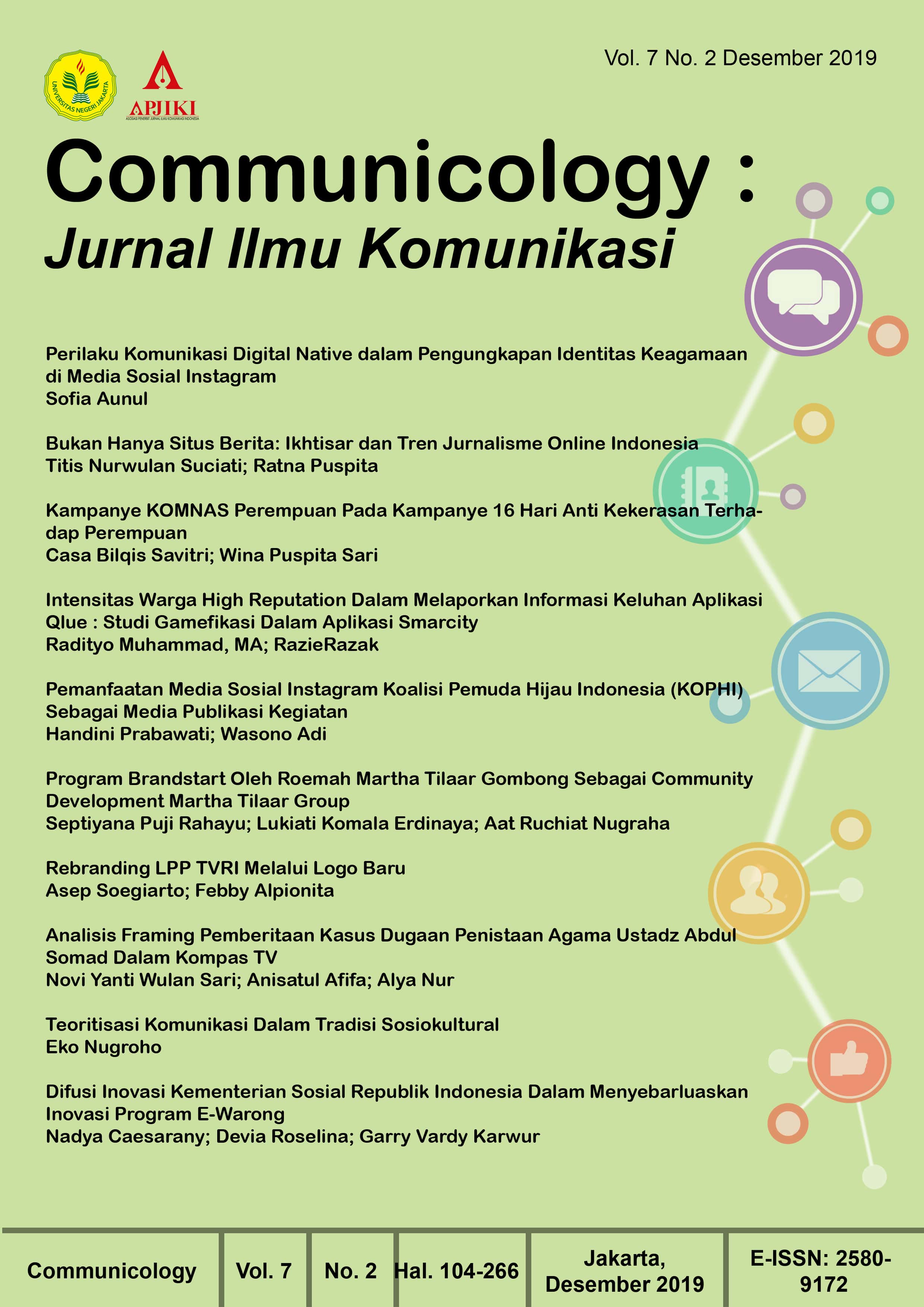Teoritisasi Komunikasi Dalam Tradisi Sosiokultural
DOI:
https://doi.org/10.21009/Communicology.012.09Keywords:
Sociocultural, Social Order, The Last SamuraiAbstract
ABSTRACT
The Last Samurai is a Hollywood production film made by Edward Zwick (2003) which won 4 (four) Oscars for several categories at the 2004 Academy Award. In this film, we can see Katsumoto and Algreen at first debating or disagreeing about ways the customs. Socioculturally, there are keywords that can be seen in the film's story, namely "culture" and "interaction". First, that there are different cultural settings from the two figures. They think in terms of two different structural meanings. Sociocultural theories provide explanations in many communication contexts. In general, this tradition explains the following ideas (Littlejhon and Foss, 2005: 45). First, our way of understanding, meaning, norms, roles and rules work interactively in communication. Sociocultural traditions authorize communication in a concept of "reproduction of social order". In this case the interaction as a discussion of communication events becomes an activity that involves the symbols that are based on the meaning, interpretation. And in interaction there is also a convention, an agreement based on the division of meaning of symbols between community members that determines the internal factors (self-concept, or identity, etc.) of each group member, so that the order or rules change as the actuality of the communication itself .
Keywords: Sociocultural; Social Order; The Last Samurai
Downloads
Published
How to Cite
Issue
Section
License
Authors who publish with this Journal agree to the following terms:
- Author retain copyright and grant the journal right of first publication with the work simultaneously licensed under a creative commons attribution licensethat allow others to share the work within an acknowledgement of the work’s authorship and initial publication of this journal.
- Authors are able to enter into separate, additional contractual arrangementfor the non-exclusive distribution of the journal’s published version of the work (e.g. acknowledgement of its initial publication in this journal).
- Authors are permitted and encouraged to post their work online(e.g. in institutional repositories or on their websites) prior to and during the submission process, as it can lead to productive exchanges, as well as earlier and greater citation of published works.
Users/public use of this website will be licensed to CC BY





